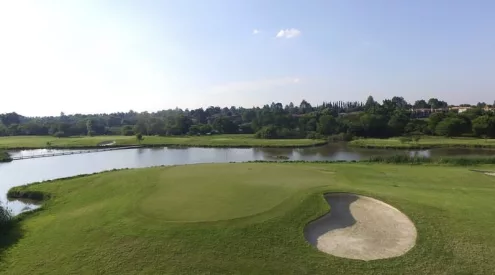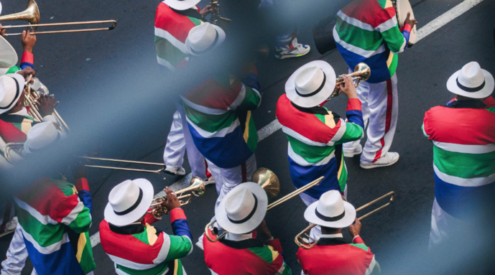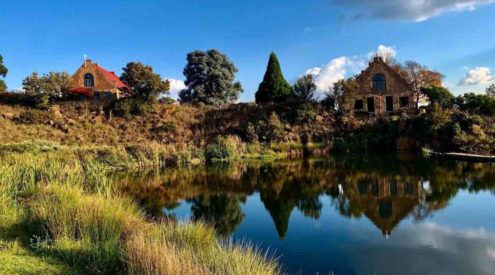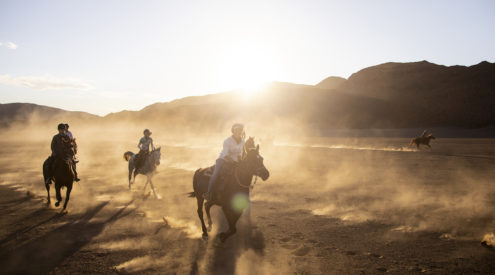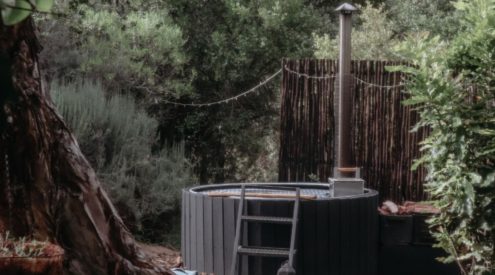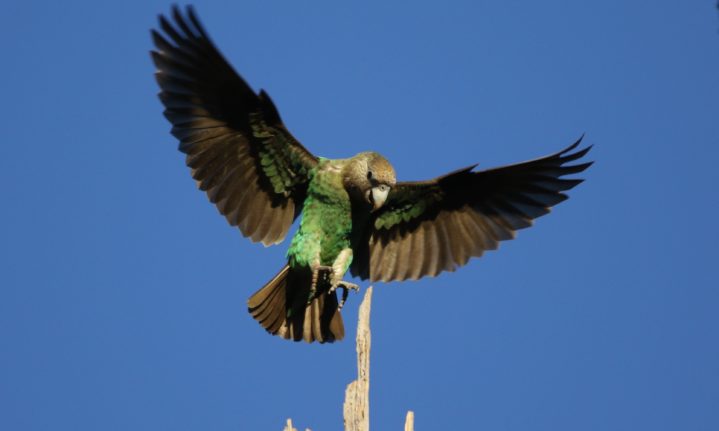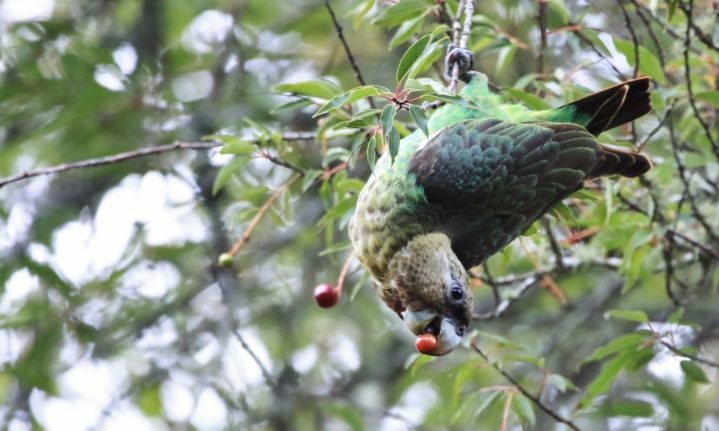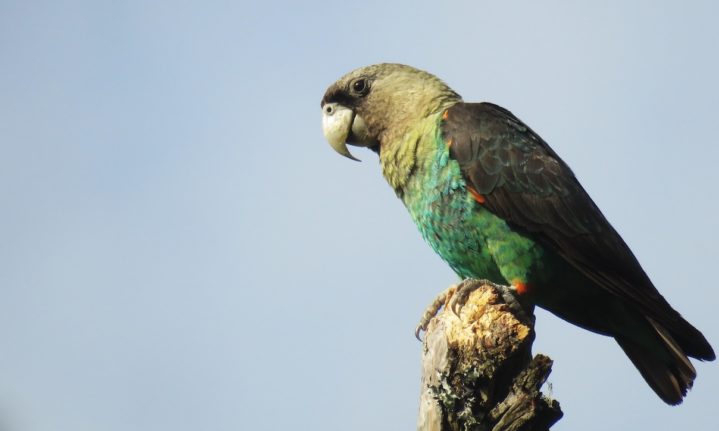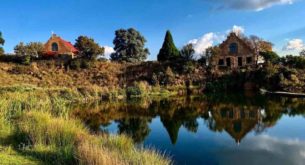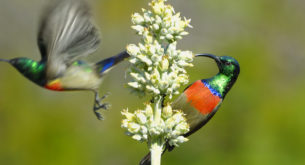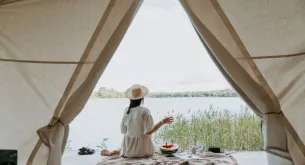The fate of the endangered Cape Parrot will take centre stage in South Africa on 31 May 2023 when World Parrot Day is observed.
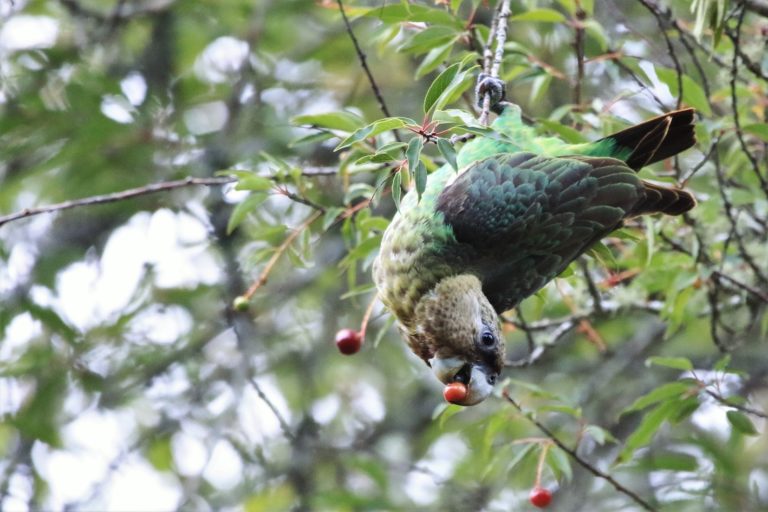
World Parrot Day will be particularly significant for South Africa. The Wild Bird Trust’s Cape Parrot Project will use this day to highlight the threatened status of the colourful Cape Parrot. which has been listed as Birdlife’s Bird of the Year for 2023.
Since its inauguration in London by the World Parrot Trust in 2004, World Parrot Day highlights the threat to wild and captive parrots throughout the world.
The Cape Parrot is listed as critically endangered with a population of less than 2 000 in the wild. Threats include the legacy of historical logging for furniture and railway sleepers as well as the current degradation of our remaining Afromontane forest patches, which it depends on. There are also disease outbreaks, direct persecution, and illegal capture of the wild-caught bird trade.
The current distribution of the Cape Parrot is restricted to a mosaic of Afromontane Southern Mistbelt forests from Hogsback in the Eastern Cape through to the southern KwaZulu-Natal. There is a small and disjunct population in Limpopo province. It is dependent on large indigenous trees, particularly Yellowwoods, for food and as nesting sites, where they use existing cavities to lay eggs.
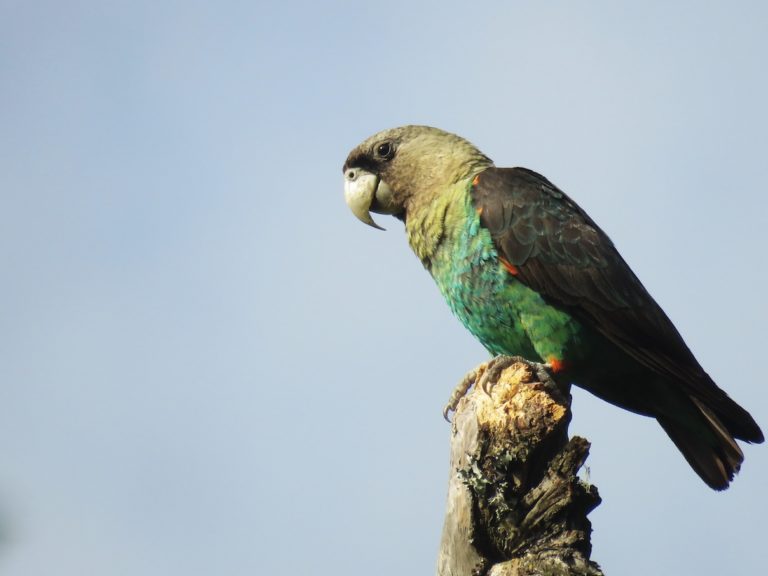
The Cape Parrot is also known as the Knysna papagaai, woudpapagaai (Afrikaans), isiKwenene (Zulu). isikhwenene (Xhosa) and hokwe (Tswana).
To ensure this species does not go extinct, the Cape Parrot Project is working to engage communities, organisations and the public to the threats the bird is facing and to educate on how we can maintain a healthy habitat for the parrot. The goal is a sustainable ecosystem for not just the parrots, but all the forest species and for surrounding communities.
The Cape Parrot Project aims to conserve the Cape Parrot by using research and science to drive conservation action where a main part of it involves partnering with local communities for habitat restoration.
Given the importance of the indigenous forest for these birds and other forest-dependent species, the Cape Parrot Project restores and protects Afromontane indigenous forests. Alien vegetation is managed to assist natural forest regeneration, and planting indigenous species is undertaken where appropriate.
Seeds are collected from a variety of local indigenous trees in the nearby forest and germinated in compost. Thousands of indigenous tree saplings are produced through the community-run nurseries built in communities adjacent to the forest habitat and the nursery at the project’s base in Hogsback in the Eastern Cape.
‘Community members are encouraged to grow seedlings which the project then buys back. These seedlings are planted back into appropriate degraded forest habitats. Thus, the Cape Parrot Project strengthens local social-ecological resilience through creating livelihood opportunities in local communities that are dependent on a healthy ecosystem and their surrounding indigenous forest,’ said Dr Francis Brooke, Research Manager for the Cape Parrot Project in Hogsback,
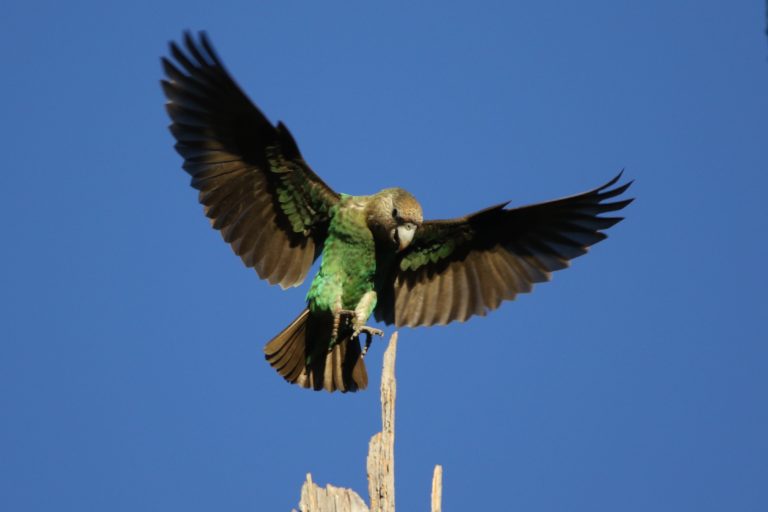
The project also engages with schools in the nearby local communities for education drives so that children can become agents of positive environmental change and increase their appreciation for the indigenous forests and all the species that call these forests home.
By restoring degraded forests and planting new trees, we can help to mitigate the impacts of climate change. Forest restoration has the potential to sequester significant amounts of carbon dioxide from the atmosphere, while also providing numerous co-benefits such as improved air and water quality, increased biodiversity, and support for local communities.
‘The restoration of forests campaign – Myforest – will be launched on World Parrot Day, 31 May, where the public can get involved by helping to protect the Cape Parrot and demonstrate their commitment to conservation in South Africa,’ Dr Kirsten Wimberger, Director of the Cape Parrot Project, said.
Simply visit them at www.wildbirdtrust.com for more information.
Follow us on social media for more travel news, inspiration, and guides. You can also tag us to be featured.
TikTok | Instagram | Facebook | Twitter
ALSO READ: Scientists theorise reasons for increasing orca attacks on boats

